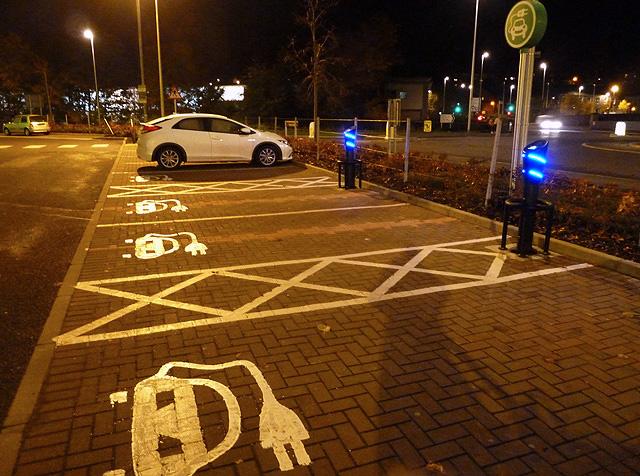Wisconsin would join four other states in requiring an annual fee to own electric cars if Gov. Scott Walker’s Department of Transportation’s recently proposed tax passes through state Legislature next year.
The budget request can still be altered by Walker before the state budget is released at the beginning of next year. According to the Star Tribune, the $50 yearly fee would raise approximately $4 million a year to compensate for taxes electric car owners avoid by not paying more for gasoline that help maintain and construct roads and other infrastructure.
Advocates for the environment have already started to push back against the proposition.
“We believe this policy is completely backward. It is taking a sustainable choice and putting a tax on it,” David Hunt, director of communication for Clean Wisconsin, said.
Nebraska, North Carolina, Colorado and Washington all tax electric and hybrid cars, with annual fees ranging from $50-$100 a year. Virginia is the only state to have repealed such a tax so far, with Virginia Gov. Terry McAuliffe signing the bill to delete the fee earlier this year.
Large funding requests in preliminary budget proposals for road maintenance and construction, including a large proposed highway project around Milwaukee, represent an increase in proposed spending in the Department of Transportation, Sierra Club of Wisconsin Director Shahla Werner said. She said owners of hybrid and electric vehicles should not be required to compensate for increased spending by the department.
“It seems like a very divertive tactic trying to blame these few hybrid and electric vehicle owners for the DOT’s transportation problem, when really the problem is their spending,” Werner said.
Werner said there are more elegant solutions to this transportation problem that do not require disincentivising hybrid and electric cars. She suggested building more charging ports for electric cars would allow the state to tax the electricity the cars use and thereby compensate for what their owners are not spending on gasoline taxes.
Hunt said he also believes disincentivising a sustainable choice makes little sense economically as well as environmentally, considering the vast amount the state spends to import fossil fuels into a state that has few sources of natural fuel. He said he believes there will be significant pushback as this proposal moves through the Legislature, not only by the community but from lawmakers as well.
“There are a lot of conservative members of the Legislature who don’t like new taxes and this is going to be a tough sell on them,” Hunt said. “I would also expect to see a lot of opposition to this from the community.”
He said the community has “significantly increased” its consumption of hybrid and electric cars in the past few years.
Werner disagrees that a conservative political climate will be beneficial to environmental groups trying to strike down this tax. Werner said she believes lawmakers will be too influenced by certain lobby groups that support increases in gasoline consumption to delete the fee before the next budget.
Hunt said he does not think the proposed tax bodes well for the future of electric cars in Wisconsin.
“There are definitely a lot of people who drive hybrids and want to invest in more fuel efficient vehicles, and the question is what kind of precedent is this tax setting for all drivers,” Hunt said.













